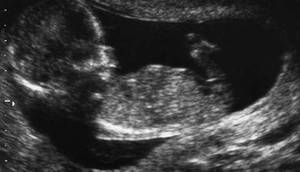Maria, a 28-year-old expectant mother in her second trimester, starts noticing her heart racing more frequently than usual. It happens when she’s relaxing, walking, or even while sitting. Concerned, Maria visits her doctor to ask, “Is an increased heart rate during pregnancy normal?”
For many pregnant women, an elevated heart rate is a common experience, but understanding what is normal and when to seek medical attention is important.
Symptom Breakdown:
An increased heart rate during pregnancy, also known as tachycardia, can make expecting mothers feel uneasy. While it’s often a natural response to the increased blood flow and changes in the body, understanding the symptoms and what to look for is crucial:
- Heart rate over 100 beats per minute (bpm)
- Dizziness or shortness of breath
- Fatigue beyond what is typical for pregnancy
- Palpitations or irregular heartbeat
It’s important to know that while these symptoms can be normal, a heart rate that is consistently high may indicate other conditions, like anemia or thyroid dysfunction, which require medical attention.
Diagnostic Path: Why Does Heart Rate Increase During Pregnancy?
Pregnancy leads to significant physiological changes in the body, and the heart must work harder to support both mother and baby. Here are some common reasons for an elevated heart rate during pregnancy:
- Increased Blood Volume:
During pregnancy, a woman’s blood volume increases by 30-50%. To manage this extra workload, the heart must pump more frequently, leading to a naturally higher heart rate. - Hormonal Changes:
Hormones like progesterone rise during pregnancy, which can stimulate the heart to beat faster. These hormones help prepare the body for childbirth but also cause the heart to work harder. - Physical Changes:
The growing uterus pushes up against the diaphragm, making it harder for the lungs to fully expand. This can cause the heart to compensate by pumping more quickly to meet the body’s oxygen demands. - Stress and Anxiety:
Emotional stress can also lead to temporary increases in heart rate. While normal during pregnancy, managing stress is important to avoid long-term issues.
Deep Dive: Normal Heart Rate vs. Concern
It’s helpful to understand what is considered a normal heart rate during pregnancy compared to what might require medical intervention.
Table: Normal Heart Rate Ranges During Pregnancy
| Trimester | Normal Resting Heart Rate (bpm) |
|---|---|
| First Trimester | 70–80 bpm |
| Second Trimester | 80–90 bpm |
| Third Trimester | 90–100 bpm |
While it’s common for the heart rate to increase by 10-20 bpm during pregnancy, any reading consistently over 100 bpm may require closer monitoring.
Treatment Comparison: Managing Increased Heart Rate During Pregnancy
If you’re experiencing an elevated heart rate, it’s important to determine whether it’s part of the normal physiological changes or a sign of a potential issue. Here are a few ways to manage this condition:
- Stay Hydrated: Dehydration can lead to a rapid heart rate. Drinking plenty of water helps maintain a balanced heart rate during pregnancy.
- Iron Supplements: If anemia is detected, increasing iron intake through diet or supplements can help reduce heart rate. Anemia in pregnancy is a common cause of increased heart rate.
- Rest and Relaxation: While physical activity is important, overexertion can raise your heart rate unnecessarily. Ensure adequate rest and avoid strenuous activities.
- Medical Supervision: If an underlying condition like thyroid disease or heart arrhythmia is suspected, your healthcare provider may suggest medications or closer monitoring. In these cases, tracking heart rate becomes a vital part of managing overall health during pregnancy.
Outcome Story: Understanding and Managing
Consider Ayesha, a 32-year-old woman in her third trimester, who started experiencing heart palpitations. After her doctor recommended increased hydration and adjusting her iron intake, her symptoms began to subside. Ayesha now checks her heart rate regularly and practices gentle exercises, keeping her and her baby safe and healthy.
Monitoring Heart Rate During Pregnancy
Increased heart rate during pregnancy is a common experience due to hormonal and physiological changes. While it’s often harmless, consistent monitoring and understanding when it could signal a problem are key. If you notice persistent symptoms or your heart rate rises above 100 bpm, don’t hesitate to consult your healthcare provider.










I’m concerned mine heart beat a bit fast. I took my high blood pressure, which was 120/80, which is normal for me. But my pulse was 101. I took my BP a few days later – it was 135/75, however my pulse was still 101. Isn’t really that a bit fast? (actually I didn’t take my BP or pulse, My mum who is a nurse took them for me. She believed my pulse was too quick also, but she does not deal with pregnant patients.).
Why would it be so fast? Is it since I am totally unsuited? I’m not obese, however certainly a long method from being fit! I’m about 28 weeks pregnant.